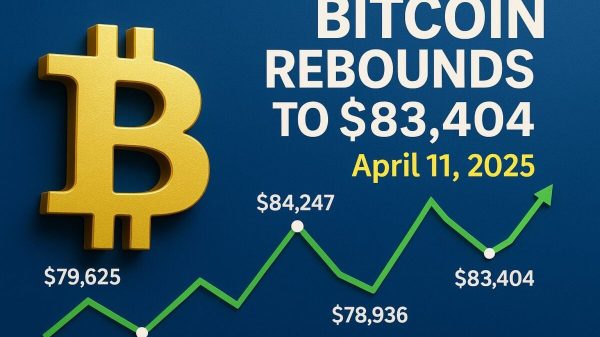It’s always hard to tell when former president Donald Trump is sincerely incensed or simply acting the part, but it seems quite likely that his excoriations of the Wall Street Journal over the weekend were not simply performative.
“In a phony and probably rigged Wall Street Journal poll, coming out of nowhere to softened [sic] the mental incompetence blow that is so obvious with Crooked Joe Biden,” he wrote on social media, “they ask about my age and mentality. Where did that come from? A few years ago I was the only one to agree to a mental acuity test, & ACED IT.” (That’s not really what the test does.)
Trump is referring to a poll published last week finding that about three-quarters of Americans thought President Biden was too old for the position — and that half said the same of Trump. It makes sense to include the question as it pertains to him, of course; Trump is the third-oldest person to serve as president and is only three years younger than his successor. But for Trump the age question is a weapon he can use to attack Biden, not something against which he himself needs to offer a defense.
Americans don’t agree.
Over the weekend, CBS News published a different poll conducted by YouGov. It found that three-quarters of Americans think there should be an age limit on serving in elected office. Of those, three-quarters said that the limit should be 70 or younger.
Interestingly, there was agreement among age groups that there should be limits — about three-quarters of respondents said there should be, regardless of age. A difference emerged between age groups when considering where to draw the line. Among those younger than 30, a third said no one should serve past 50 or 60. Among those age 65 and older, a plurality said the line should be drawn at 70.
As Trump would be eager to point out, there is no consistent boundary past which human cognition or physical abilities decline. Trump and his allies focused on Biden’s acuity as a point of criticism before the 2020 election, amplifying partisan attention on the issue.
The public travails of Sen. Dianne Feinstein (D-Calif.) and Senate Minority Leader Mitch McConnell (R-Ky.) have maintained public attention on the overlap of function and age. Biden’s long-standing habit of verbal fumbles has made it easier for his opponents to loop him into that conversation, as have visible signs of his age.
All of this, though, overlaps with a broader trend in the United States: Americans are growing older in general. Older Americans make up more of the population than at any point prior — and they make up more of the Senate.
You can see that below: The percentage of senators age 65 or older has crept higher, as has the population of the country. The age of House members, by contrast, has started trending back down.
So let’s back up. Why is the population getting older? Because the baby boom generation, that surge in births that followed World War II, is getting older. The first boomers started turning 65 in 2011, just where the gray line above starts turning upward. The year in which the most births occurred during the boom was 1957 — 65 years before 2022.
Some part of the question of age in politics overlaps with the broader generational tension that has accompanied the increasing political and economic power of millennials — a group that was only a bit smaller at its peak than the boomers. The CBS-YouGov poll makes clear that the idea of instituting a limit on public service is not age-dependent, but it also shows the divide between younger and older Americans on where such a line should be drawn.
To some extent, the boomer-vs.-millennial struggle for power is already being resolved in favor of the latter group. In both the House and the Senate, the percentage of baby boomers has declined, with the House for the first time having more members who were born after the boom than during or before.
It isn’t simply that America is growing older and therefore Congress and the president must necessarily also grow older. The consistently high rate of incumbent success in House and Senate elections plays a role, too. But this overlaps with the aging population: If you have more older people in public service, it’s predictable that you would have more of those people deciding to run again.
Rep. Nancy Pelosi (D-Calif.) last week announced that she would seek reelection to the seat she has held since 1987 — a year after which nearly half of Americans alive in 2023 were born. It’s a reflection of the pattern above, but also an interesting contrast with her decision to step down from her leadership post within the party earlier this year. That move was obviously, if not explicitly, meant to send a signal to the Democratic voting base (which has more young Americans than the Republican one) that the party understood frustrations about older Americans blocking paths to power. Her decision to seek reelection undercuts that idea.
Tellingly, the reason offered by respondents in the CBS News poll for having concern about serving in office past the age of 75 wasn’t that it raised concerns about ability. Instead, it was that older elected officials “risk being out of touch with the times.” That’s less about cognition than representation.
While every age group agreed with that concern to about the same extent, it is a reminder that a lot of concern about older politicians stems from doubts about whether they understand what younger Americans — even if “younger” means in their 50s — are going through. It’s about whether they recognize the problems those Americans face.
In that sense, Trump is understandably vulnerable to many of the same questions about age as Biden, Feinstein and McConnell.


































